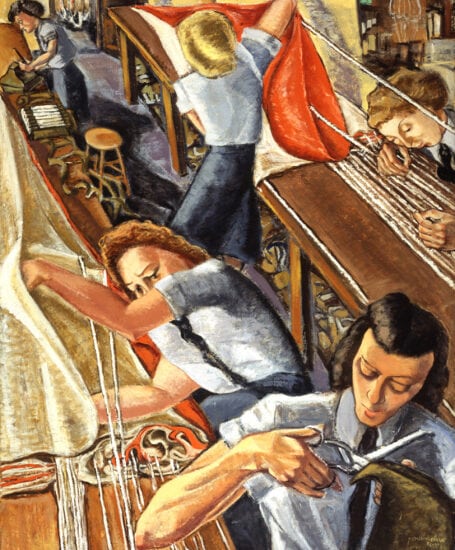This is no April Fool’s Day joke – minimum wage in Nova Scotia will rise by 3.8% — to $12.95 per hour. The bigger news is that on Apr. 1, PEI will lead Atlantic Canada’s minimum wage at $13 an hour. That same day, Newfoundland and Labrador boost their minimum wage to $12.50 per hour. And New Brunswick’s minimum wage, will increase by 5 cents — to the princely sum of $11.75 an hour. New Brunswick has the dubious distinction of having the lowest minimum wage in Canada.
The NS Minimum Wage Review Committee (composed of labour and management representatives), pushed for a minimum wage closer to the middle of the pack for all provinces of Canada, rather than at the low end. Nova Scotia is one of only five jurisdictions (out of 13) with a minimum wage of less than $13 an hour.
The Review Committee shows us a snapshot of who earns minimum wage in Nova Scotia:
- 8.5% of workers or 39,620 people earned minimum wage from January to June 2019, up 7.1% or 7,300 from 2018. This was before Covid pushed employers to cut hours and working conditions for thousands of employees.
- 62% of minimum wage earners are women
- 73% of minimum wage earners work in retail, and in food and accommodation
- 56% on minimum wage are under age 25, and
- nearly 60% work part-time
The Review Committee made an attempt to point out that because 62% of minimum wage earners are women, a “diversity and inclusion lens be applied when setting government policy in relation to the minimum wage.” Of course we will have at least another year go by before that is tackled . We need no more evidence to show the dire need for this as we know more it was far more women than men who fell victim to cuts in their working hours, and disappearance of their jobs. In fact during Covid, more than 12,000 jobs in Nova Scotia have been lost in retail sales, food and accommodation.

There are two important considerations to look at when addressing poverty issues around minimum wage. The first is: can minimum wage workers earn more money through overtime pay? The second is: exactly who does and does not qualify for minimum wage?
We can find the answers to both in the NS Labour Standards here.
In Nova Scotia, unless you are represented by a union and covered by a collective agreement, overtime begins only after 48 hours of work. That’s right. So for minimum wage employees, they earn only time and a half ($19.42/hour) for every hour they work starting with their 49th hour of work, in a seven day week. Basically, employers have to pay overtime only after an employee works 8 hours a day, for six days out of seven days.
Most Nova Scotians have to work six days a week before they get overtime pay
See Labour Standards, p 14 https://novascotia.ca/lae/employmentrights/docs/LabourStandardsCodeGuide.pdf
Who is covered by Nova Scotia minimum wage legislation? Everyone not represented by a union and a collective agreement includes retail clerks, cleaners, office workers, truck drivers, restaurant and bar workers, caterers, gas station attendants, childcare workers and hotel staff. Who is not covered by the minimum wage law? Farm workers, apprentices, playground and summer camp staff, real estate or car sales people, loggers and forestry workers, live-in personal care or domestic workers, or anyone who works on a fishing boat. Self-employed people are also excluded. So are people who work in federally regulated businesses such as banks, or airlines, or radio stations which are not unionized.
Nearly 25,000 women in Nova Scotia earn minimum wage. Perhaps another 25,000 earn within $2 of minimum wage — or $15 or less per hour. That is 50,000 women, few of whom even get 40 hours of work a week. Many of the women are heads of households, and are mothers with children, or spouses or parents to support. Statistics Canada tells us that many women have lost more than half of their usual paid work hours to Covid. If women have been “underutilized” in the workforce due to fewer work shifts, less hours, or disappearance of their jobs, women’s wages have plummeted. If a woman earns $14 an hour ($1.05 more than Nova Scotia’s minimum wage) for 20 hours a week, her yearly income will be $19,000. Who can live on that? Economist Armine Yalnizyan coined the term she-cession when she said that unless there is a she-covery — that is improved wages and childcare — there will be no way for a pandemic recovery.
Judy Haiven is on the steering committee of Equity Watch, a Halifax-based organization which fights bullying, racism and discrimination in the workplace. You can reach her at equitywatchns@gmail.com
Check out our new community calendar!
With a special thanks to our generous donors who make publication of the Nova Scotia Advocate possible.
Subscribe to the Nova Scotia Advocate weekly digest and never miss an article again. It’s free!



